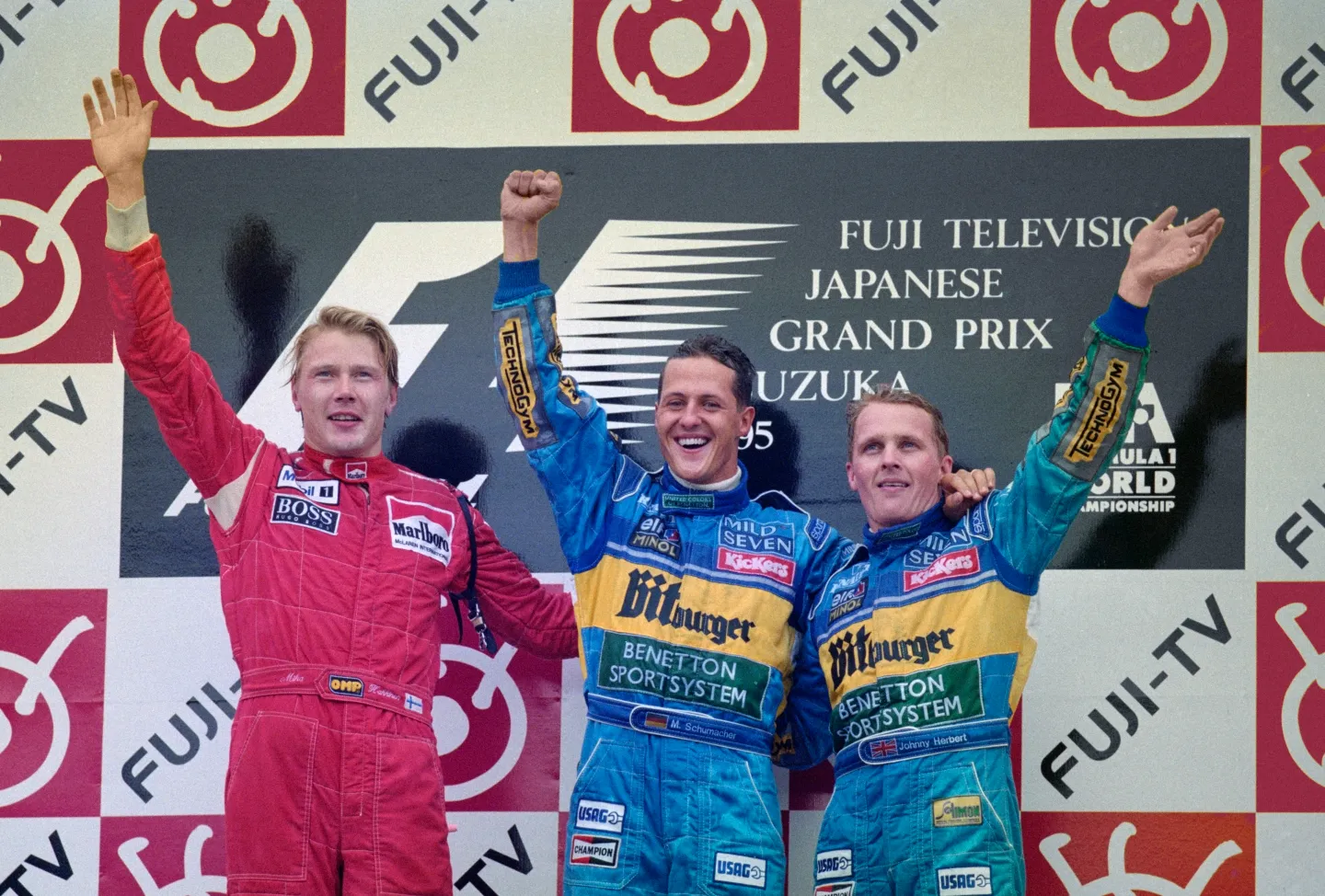
This weekend, Ferrari returns to the Japanese Grand Prix, their hopes high as they look to draw upon the rich history of their past successes at Suzuka in a bid to reignite their title challenge. The Scuderia, despite facing a significant setback with their first-ever double disqualification in their 75-year history, has always found solace in the iconic circuit that has seen so many memorable moments. Suzuka, a track woven into Ferrari’s heritage, stands as a symbol of triumph, particularly during Michael Schumacher’s glory years.
Schumacher’s relationship with the Japanese Grand Prix is one steeped in success, with the legendary German driver securing his first of six wins at Suzuka in 1995. But it was his dominance in the early 2000s, when Ferrari enjoyed a near-unbeatable streak, that etched Schumacher’s name permanently into the annals of F1 history. From 2000 to 2004, Schumacher won the Japanese Grand Prix a staggering five times, a run that cemented his legacy as one of the sport’s greatest.
Yet, among all those victories, it was the very first Japanese win that still stands out as a defining moment for Schumacher. In fact, he famously called it the “race of my life,” a statement that holds even more weight when one recalls the circumstances surrounding that historic victory.
The 2000 Japanese Grand Prix: A Defining Moment
The 2000 Japanese Grand Prix was not just another win for Schumacher – it marked the beginning of Ferrari’s dominance in Formula 1. On that fateful day in Suzuka, Schumacher secured his third win of the season, clinching his first-ever Formula 1 World Championship with Ferrari after a 21-year drought for the Scuderia. It was a victory that meant so much more than a simple race win; it was the culmination of years of hard work, dedication, and sacrifice.
What made it so special for Schumacher was not only the immense personal achievement but the historic significance of the moment. Ferrari had been without a championship for two decades, and Schumacher’s triumph not only restored the team’s legacy but also revived the Prancing Horse’s championship-winning spirit. The 2000 title also marked the beginning of a golden era for the team, with Schumacher leading Ferrari to five consecutive Drivers’ and Constructors’ titles between 2000 and 2004.
“F1’s Craziest Party”
However, behind the glory of the track lay an unforgettable off-track moment that added to the legend of Schumacher’s first Japanese win. After the race, the celebrations at Suzuka became the stuff of F1 folklore. Known as ‘F1’s craziest party’, the atmosphere was nothing short of wild. Schumacher, despite the emotional and physical toll of such an intense season, found himself part of an iconic celebration that would be remembered for years.
The party was infamous for its excess, with drivers, team members, and other figures in the F1 paddock celebrating in a way that was rarely seen at such a high level of competition. It was a night of jubilant chaos, but for Schumacher, it came with its own consequences. The German driver later admitted that it took him two whole days to recover from the celebrations. Despite the festivities, the emotional and physical exhaustion took a toll, but it also solidified the importance of that particular race in his life.
Schumacher would later describe the 2000 Japanese Grand Prix as the “race of my life,” not just for the title win but for the significance it held in his career and in the history of Ferrari. The celebrations, though wild, symbolized the culmination of a journey that began when he first joined Ferrari in 1996. After four years of hard work, struggles, and near-misses, the victory was a perfect reward for his relentless pursuit of excellence.
Ferrari’s Struggles and Suzuka’s Significance
As Ferrari returns to Suzuka this weekend, the team finds itself in a much more challenging position. After a dismal performance in the previous race, marked by their first-ever double disqualification, they are in desperate need of something to reignite their championship hopes. But Suzuka remains an important place for the team, a circuit that holds the key to many of their most memorable moments.
While Ferrari has not won the Japanese Grand Prix since Schumacher’s five-year streak from 2000 to 2004, the team’s legacy at Suzuka is undeniable. Schumacher’s dominance during that era formed the bedrock of Ferrari’s successful run, and while the current team faces a steep challenge, they can certainly look back on those glory days as a source of inspiration.
In many ways, Schumacher’s first win at the Japanese Grand Prix in 2000 remains a touchstone for Ferrari’s aspirations. It represents not just a moment of triumph but also the beginning of a golden era for the team. If they can tap into that hallowed history this weekend, perhaps the Scuderia can kickstart another title challenge.
After all, as Schumacher’s “race of my life” proved, anything can happen at Suzuka.
Leave a Reply